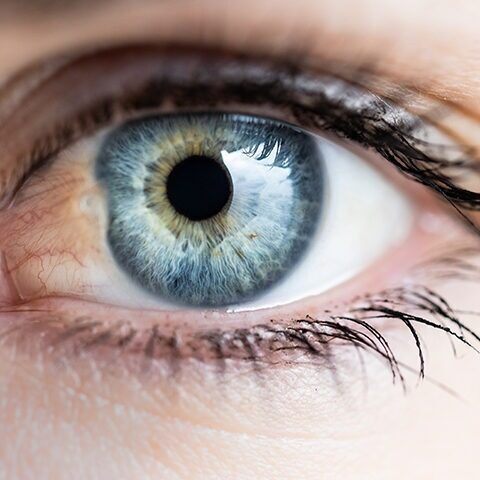Pterygium & Pingueculum Treatment
Pingueculae and pterygium treatment often involves eye drops or lubricants. Steroid drops may also be used as a short-term measure although regular use suggests surgery may be required.
While in many cases pingueculae only cause mild symptoms such as a gritty feeling and irritation, they can become inflamed and interfere with vision.
Here we cover the difference between pinguecula and pterygium, symptoms and treatments.


What is the difference between a pterygium and a pinguecula?
Pinguecula and pterygium are non-malignant growths that occur on the eye.
A pinguecula is a yellowish, raised growth on the conjunctiva, most commonly on the side of the nose. While a pterygium, also referred to as surfer's eye, is a fleshy mass that extends over the cornea.
Both of these types of growths tend to result from years of exposure to sun, dust and wind. As such, they are more commonly found in people who are outdoors often. These are not the only triggers though as the condition can appear in a healthy eye, in any environment.
Pinguecula do not usually require treatment, although a pterygium may interfere with vision and require surgery.
Symptoms of pingueculum
These growths can cause the eye to have an unpleasant appearance with constant redness, especially on hot windy days or in smoky or dusty environments.
Some patients are conscious of the cosmetic appearance of a pterygium or pinguecula as they can be quite obvious. Pterygium may become quite large, distorting vision.
Other symptoms include:
Treatment options
In many cases, no treatment is required. However, when a pinguecula or pterygium becomes irritated, eye drops can relieve the irritation temporarily.
Lubricants can also help. Steroid drops can be used as a short-term measure, but if you need to use these often you may need surgery.
If the growth becomes large and affects vision or causes constant discomfort, it can be surgically removed.
Pterygium surgery
Pterygium surgery involves cutting the pterygium away from the eye. Surgery takes about 45 minutes and requires a day hospital stay and the use of an operating microscope.
Local anaesthetic is used and the experience is no worse than a trip to the dentist.
After surgery it will take about 6 weeks for the eye to settle and you will need 4-5 days off work. Your glasses prescription may need to be changed after pterygium surgery.